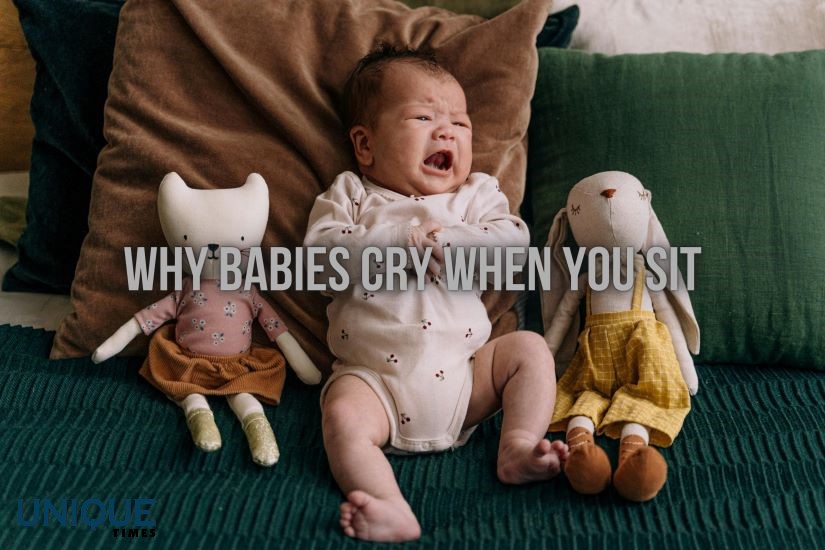The mysterious and often inconsolable cries of newborns can leave parents feeling perplexed and frustrated. One common scenario that many parents encounter is when their baby starts crying as soon as they sit down, only to stop crying once they start standing up. But why does this happen? Let’s delve into the possible reasons behind this curious behavior:
1. Comfort and Security
When you sit down with your baby, they may feel a sudden change in their environment, leading to feelings of insecurity or discomfort. Babies are accustomed to being held in an upright position, where they feel safe and secure in your arms. Sitting down may disrupt this sense of security, prompting them to express their distress through crying.
2. Sensory Stimulation
The act of sitting down can change the sensory input that your baby experiences. When you’re standing up, your movements may provide a gentle rocking or swaying motion that soothes your baby and helps them feel calm. However, when you sit down, these comforting movements may cease, leading to a sensory shift that triggers crying.
3. Need for Interaction
Babies thrive on interaction and engagement with their caregivers. When you sit down, you may be less physically engaged with your baby compared to when you’re standing up and moving around. Your baby may interpret this as a lack of attention or interaction, prompting them to cry in an attempt to seek your attention and comfort.
4. Gas and Discomfort
The act of sitting down can sometimes exacerbate feelings of gas or discomfort in babies, particularly if they are experiencing digestive issues or colic. The pressure on their abdomen from sitting may worsen these discomforts, leading to increased crying. Standing up may alleviate this pressure and provide relief, resulting in a cessation of crying.
5. Change in Perspective
Babies’ vision and perception of their surroundings are still developing, and changes in perspective can affect how they perceive their environment. When you sit down, your baby’s view of the world may change, leading to feelings of uncertainty or unease. Standing up may restore their familiar perspective, alleviating any distress they may have been experiencing.
6. Need for Movement
Babies have a natural instinct to seek movement and stimulation, which helps them develop and thrive. When you’re standing up, you may be more likely to engage in gentle rocking or swaying movements that mimic the sensations they experienced in the womb. These movements can be soothing and comforting for your baby, helping them relax and stop crying.
In conclusion, there are several potential reasons why infants may cry when you sit down but stop crying when you stand up. Whether it’s due to changes in comfort, sensory stimulation, interaction, discomfort, perspective, or movement, understanding your baby’s cues and responding with patience and empathy is key to soothing their cries and fostering a strong bond between parent and child.
Picture Courtesy: Google/images are subject to copyright









